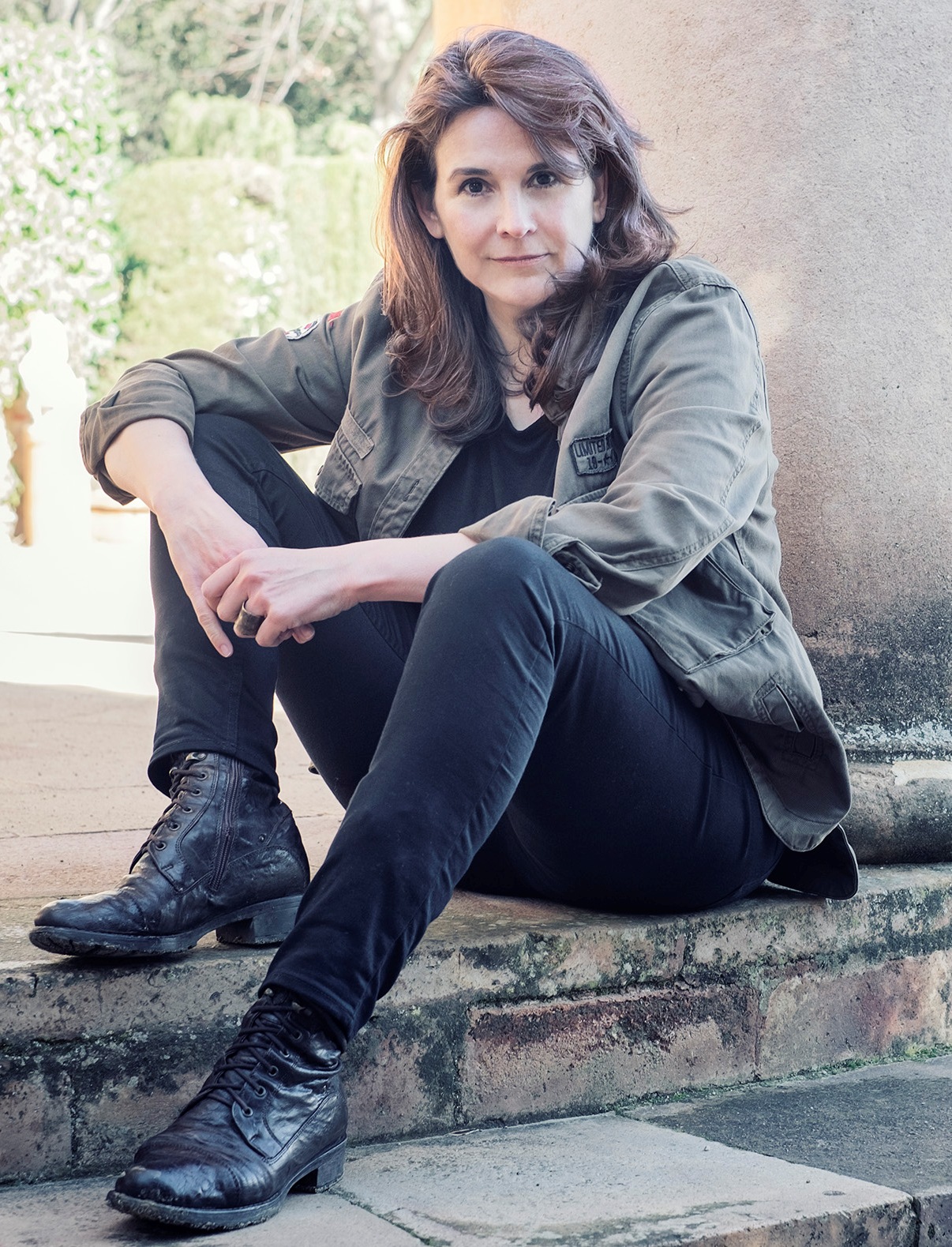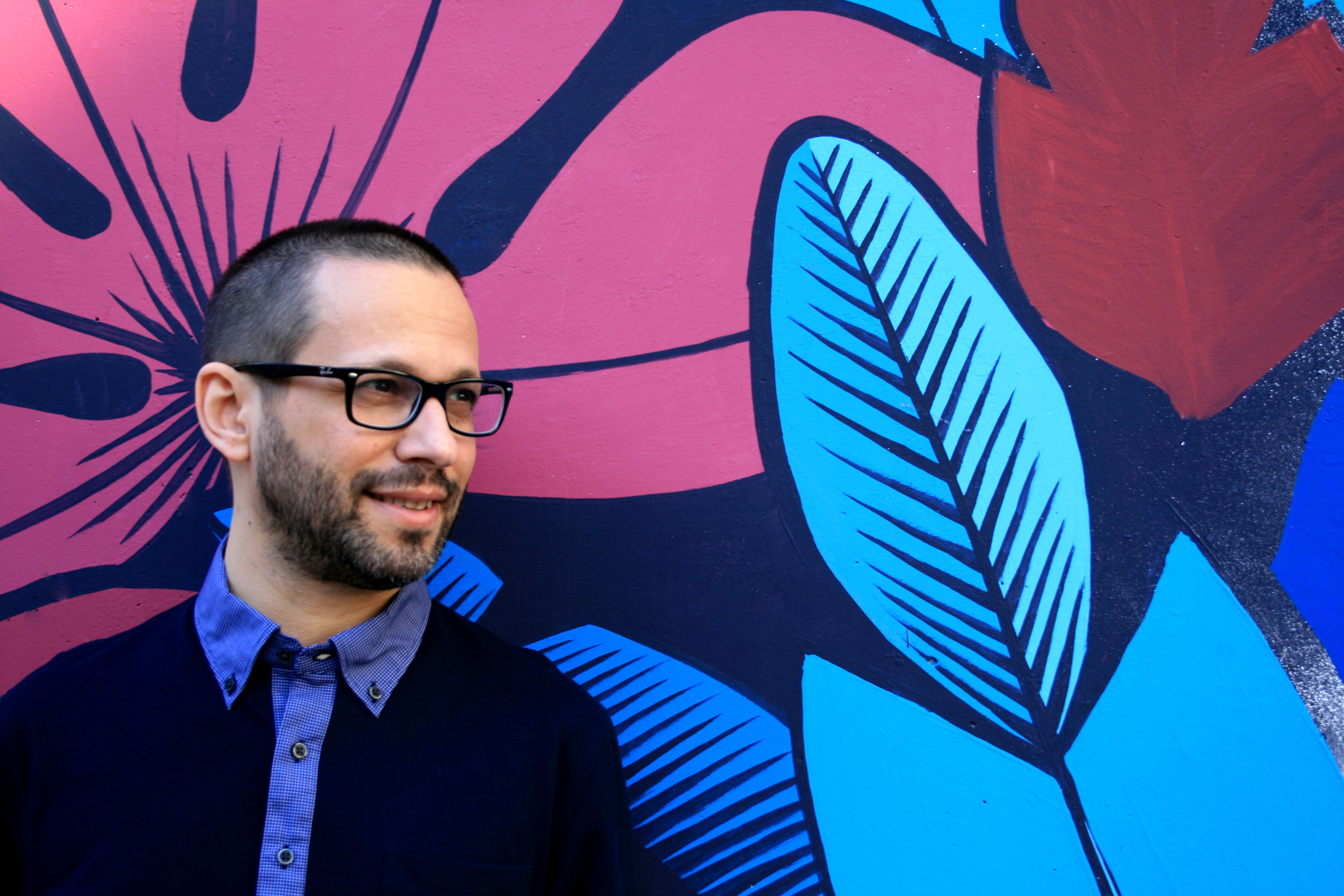This is the nineteenth in a series of posts featuring speculative flash fiction in translation. The series highlights both new and established spec fic writers from around the world.
 Susana Vallejo (Madrid, 1968) is an author who works in PR/Communication in Barcelona, where she’s lived since 1994. She has won numerous prizes in the fields of both young adult literature (she won the Edebé prize in 2011 for El espíritu del último verano and was a finalist for the Jaén Prize in 2007 for her Porta Coeli trilogy) and SF (she was a finalist for the Minotouro International SF and Fantasy Prize in 2008 for Switch in the Red and in 2013 for Volverás a Toledo). She is also author of the humorous essay/parenting book Madre de Dragones, humorous thrillers such as El móvil que guardaba en su interior el secreto de la chica de la camisa naranja, the mystery novel Calle Berlín, 109, and children’s books such as Entre Dimensiones or Tres Amigos y un fantasma.
Susana Vallejo (Madrid, 1968) is an author who works in PR/Communication in Barcelona, where she’s lived since 1994. She has won numerous prizes in the fields of both young adult literature (she won the Edebé prize in 2011 for El espíritu del último verano and was a finalist for the Jaén Prize in 2007 for her Porta Coeli trilogy) and SF (she was a finalist for the Minotouro International SF and Fantasy Prize in 2008 for Switch in the Red and in 2013 for Volverás a Toledo). She is also author of the humorous essay/parenting book Madre de Dragones, humorous thrillers such as El móvil que guardaba en su interior el secreto de la chica de la camisa naranja, the mystery novel Calle Berlín, 109, and children’s books such as Entre Dimensiones or Tres Amigos y un fantasma.
 Lawrence Schimel writes in both Spanish and English and has published over 100 books as author or anthologist for readers of all ages. Recent literary translations into English include the poetry collections Bomarzo by Elsa Cross (Shearsman) and Destruction of the Lover by Luis Panini (Pleiades) and the novels Monteverde: Memoirs of an Interstellar Linguist (Aqueduct), The Wild Book by Juan Villoro (Restless Press), and La Bastarda by Trifonia Melibea Obono (USA: Feminist Press/South Africa: Modjaji Books).
Lawrence Schimel writes in both Spanish and English and has published over 100 books as author or anthologist for readers of all ages. Recent literary translations into English include the poetry collections Bomarzo by Elsa Cross (Shearsman) and Destruction of the Lover by Luis Panini (Pleiades) and the novels Monteverde: Memoirs of an Interstellar Linguist (Aqueduct), The Wild Book by Juan Villoro (Restless Press), and La Bastarda by Trifonia Melibea Obono (USA: Feminist Press/South Africa: Modjaji Books).
“Returning” by Susana Vallejo, translated from the Spanish by Lawrence Schimel
Returning.
After so long, she could return to Earth; breathe air that smelled of pine, of eucalyptus, of the sea, of rotting algae… What the hell did rotting algae smell like? She could no longer remember. Scents were forgotten. Or rather, they remained, hidden in some dark corner of the brain. Hidden beside the smell of a roast chicken, of smoked salmon, of a strawberry, or a muffin.
She would return to live within the green. Green fields and green hills. In the house in the village surrounded by hundreds of greens. Would the house in the village still exist? From the kitchen window one could see a string of elms and, beyond them, right there, was the stream. Water.
Crystalline water in movement, crossing the green. God, just thinking about it made her tremble.
She finished packing the samples. All of them perfectly labeled in their own little box with their own chip. The information about each was found in the memory stored within the package itself.
The computers would remain behind. They weighed too much and it wasn’t worth moving them. Only she and that metallic box would return, the case that still had room to store something more. And her replacement would arrive with the ship: a handful of young men or women, eager to learn, to explore the planet, to investigate, to devour a new world. Just as she had been years before. Her replacement would bring with them new equipment, provisions, maybe even a new module to repair the one destroyed by the explosion. And she would return to green Earth on that same ship. Without knowing whether in her village the stream and the elms were still there, or if they’d been swallowed by a new road.
She would return and Toni would already be dead. And Sara and her mother and Stacy and all her friends. Because that was part of space travel. She had already known and accepted it when she decided to volunteer to explore the planet. She already knew what she’d lose, but in exchange she’d greet the future: new technologies, discoveries… And she’d contribute to progress with her studies of xenominerals. Was there anything better than science and research? Something better to contribute to the development of humanity?
She would return to Earth and remain on the Base for a while and then they’d retire her. Just like they’d done with O’Brian. She remembered that mature man who never stopped recounting battles, of talking about his planet and of the times when vehicles used petroleum for fuel. The young cadets laughed at him and his one-track discourses. Now it was her turn. They’d retire her at fifty two–or one hundred thirty four, depending on how one counted. Only she had survived the explosion. And she’d managed to communicate to tell them she was still waiting for them. Alone. Gathering her minerals and samples.
She sighed and breathed in a mouthful of rancid air that had been recycled thousands of times. Air that no longer smelled of anything. She undressed and washed with water being reused for the millionth time. She put on her worn underwear and the old knit sweater, the green one she had brought from earth. The one that warmed her on cold, lonely nights. Now it was too tight, but it reminded her of the green of her field and had become the only green thing on this planet. She put on her spacesuit on top of it and then got into the vehicle to take a last pass through.
The wheels left a track on the dry, dusty sea, and a curtain of fine sand rose for hundreds of meters behind her, reflecting the reddish light of the two suns.
She suddenly stopped and turned back.
The dust floated around and when the particles faced either of the two stars they threw reddish glimmers, ruby, vermillion… She moved her hand and the sand danced, making spirals.
She leaped down from the vehicle. When she touched the ground, new clouds of dust joined the dance and shone in yellowish and golden tones.
She looked toward the gentle hills of the horizon and examined the rocks sculpted by the wind over millennia into whimsical shapes. She knew each and every one of them and had given them names. Their twin shadows danced on the dusty ground beside her own.
That was her favorite place. The landscape for 360 degrees showed nothing human. Just the dry sea, the gentle hills and the whimsical rock formations. The glimmers, the infinite reds and yellows and oranges. With the first sunset, the sky would begin to burn and would transform into a palate of purples and violets.
What would the air of her planet smell like? How would that breeze feel on her skin?
She pressed the decompression button on her suit. And she removed her helmet.
She breathed deep of the gilded air.
It smelled dry, of pyrite and graphite and needles. Of flan and sugar. Of sandpaper and sawdust. Of red iron.
The air caressed her skin with the same gentleness as a lover, that gentleness she’d almost forgotten. It was warm and heavy. It was pinkish and metallic. It caressed her and penetrated through each of her pores. Slowly. Hot. Dry.
She breathed deeply. Dust, golden and red.
The air burned and it tasted of blood.
She began to cry and didn’t know if this were because her body was trying to defend itself or from the pain of the loss. And she thought of the green fields and the hills. And of the elms and the creek and the flowing water, in movement, like her thoughts which whirled outside of her grasp. There was a gap still in the suitcase, and she hadn’t packed her green sweater. Green like her red Earth. Always green.
###
First published in THE CASCADIA SUBDUCTION ZONE, Vol 8, No. 4, 2018. Reprinted by permission of author & translator.
